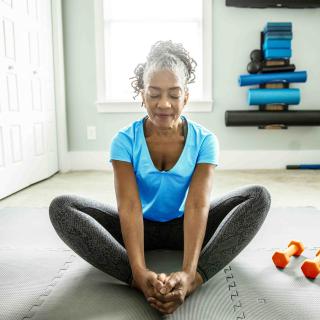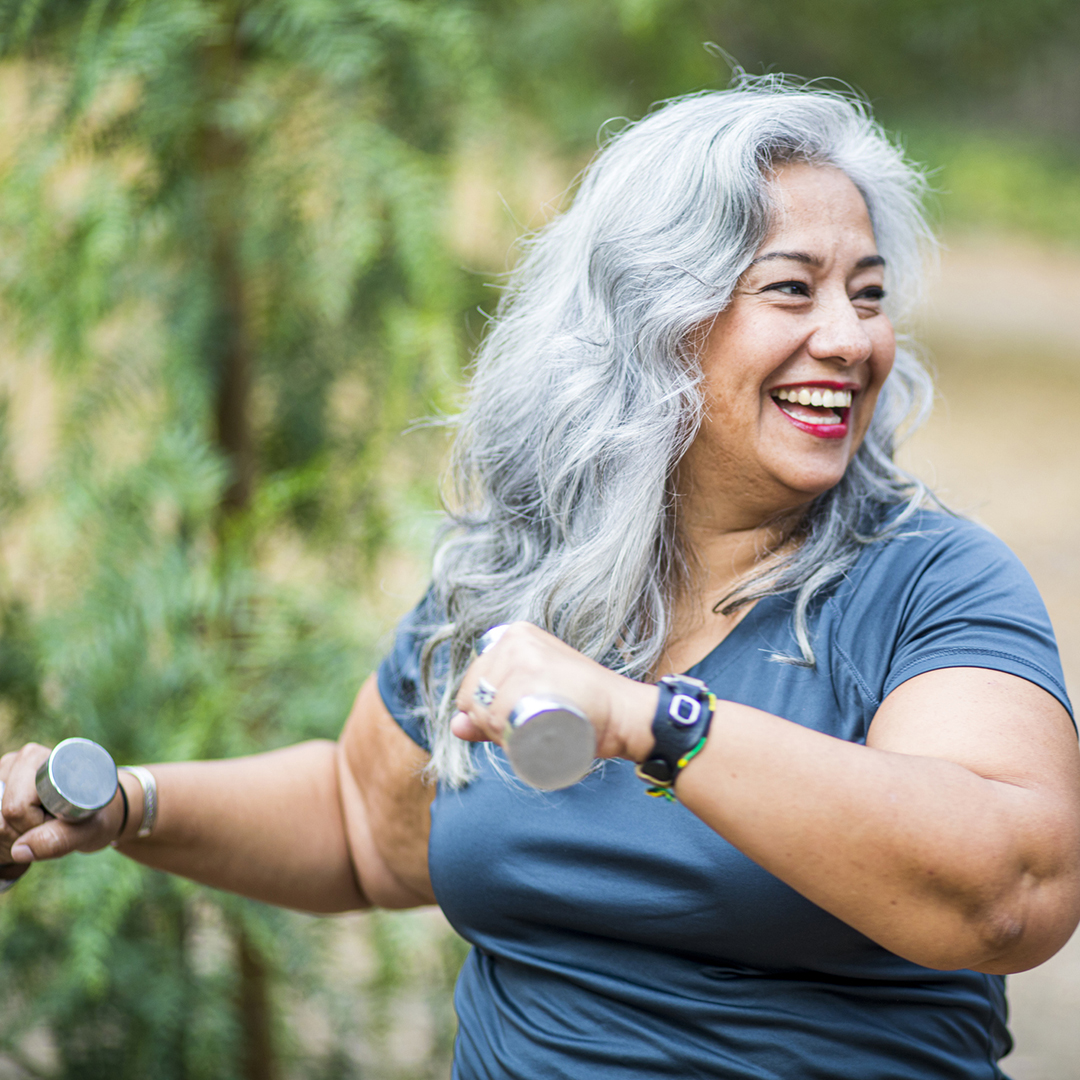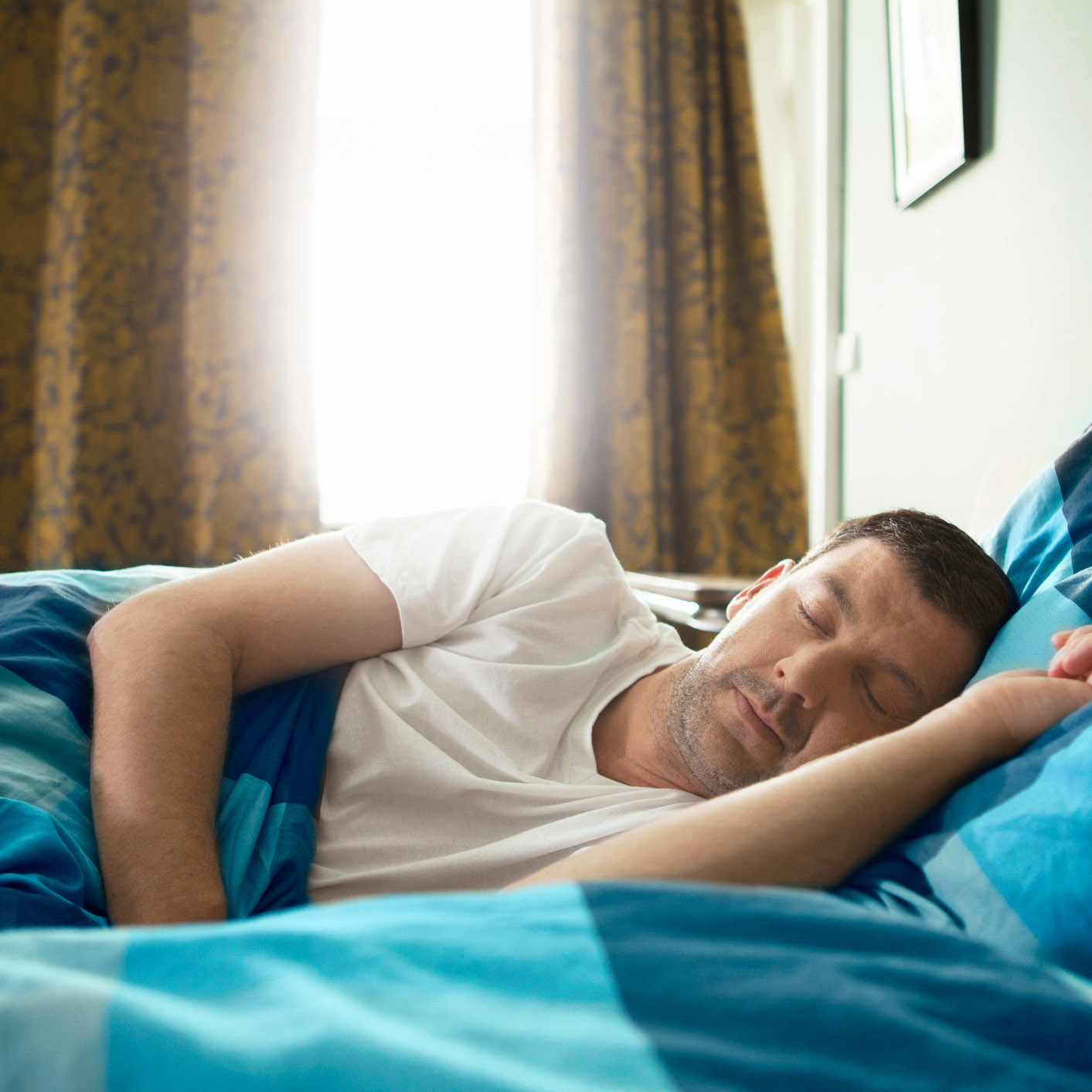Natural ways to manage stress and anxiety

We all experience varying levels of stress or anxiety in our lives, whether it’s stress from everyday hassles like work, social activities, or family life, or stress triggered by a major life event like a divorce, a death in the family, or even a global pandemic.
In small doses, stress or anxiety isn’t a bad thing. It’s just the body’s natural response to a perceived challenge. However, when stress or anxiety becomes uncontrollable or excessive, it can dramatically affect a person’s quality of life and lead to anxiety disorders or depression.
The National Institute of Mental Health estimates that 31% of Americans will experience an anxiety disorder at some point in their lives.1
Medication and therapy are two ways to treat high levels of anxiety or stress. However, there are a number of other options that can help, too. Here are some examples of lifestyle adjustments that may be beneficial in combatting stress and anxiety.
Move more
Any form of physical activity, whether it’s walking, running, or even simply cleaning the house, can alleviate stress or anxiety. This is because exercise increases endorphins, feel-good chemicals in the brain, and reduces the stress hormones cortisol and adrenaline.
Physical activity also lowers blood pressure, which can temporarily spike when the body is exposed to stress, and reduces muscle tension by allowing more oxygen into the cells.
Exercising also distracts the mind by forcing you to focus on your body’s movements instead of the things that are causing you stress or anxiety.
Check with your doctor before starting a new fitness routine. Most health professionals suggest starting small by walking 20 to 30 minutes a day and building up to about 150 minutes of physical activity a week.
Eat a healthy diet
Research suggests that eating an anti-inflammatory diet of whole foods, lean protein, fruits, vegetables, and healthy fats, and limiting processed foods, sodium, caffeine, and alcohol, is associated with lower levels of depression, anxiety and stress.2
A balanced diet also supports a strong immune system and provides extra energy to cope with stressful events. An easy way to eat healthy is to follow the MyPlate Plan. Fill half of your plate with whole fruits or vegetables, a quarter of your plate with lean protein, and the remainder with complex carbohydrates. Check with your doctor if you have any chronic health conditions or dietary restrictions and they can help you figure out what’s best for you.
Calm your mind
In a review of more than 200 studies, researchers found that mindfulness-based therapy was particularly effective at reducing stress, anxiety, and depression.3 Examples of these activities include meditation, yoga, tai chi, and deep breathing exercises.
Mindfulness-based activities calm the mind and instill a sense of peace by focusing on taking slow, deep breaths. Breathing slowly reduces muscle tension, lowers your heart rate, and allows the parasympathetic nervous system (the “rest and digest” system) to kick in.
Get a good night’s sleep
Sleep quality and quantity can have a dramatic impact on how you manage stress and anxiety. This means aiming to fall asleep within 30 minutes of getting into bed and staying asleep for about 7 to 8 hours without waking up more than once in the middle of the night.
Sleep is a powerful stress reliever for a number of reasons. It gives your brain a chance to shut down and repair neurons and your body a chance to repair and grow tissue to support a healthy immune system. Healthy sleep also decreases cortisol levels and improves your mood, energy, and ability to concentrate.
To get a good night’s sleep, the CDC recommends the following:
- Go to bed at the same time each night and wake up at the same time each morning.
- Create a good sleep environment by making sure your bedroom is dark, quiet, relaxing, and comfortable.
- Don’t drink caffeine or alcohol before bedtime.
- Turn off devices like your TV, computer, tablet, or phone at least an hour before bedtime to avoid blue light exposure.
Ask for help
If your stress or anxiety levels are still high after trying these lifestyle changes, then it might be a good idea to consider speaking with a mental health professional. He or she may recommend therapy or prescribe medication to help you manage symptoms.
1 National Institute of Mental Health: Any Anxiety Disorder (accessed September 12, 2022): nimh.nih.gov/health/statistics/any-anxiety-disorder.
2 Nutrients: Diet Quality for Sodium and Vegetables Mediate Effects of Whole Food Diets on 8-Week Changes in Stress Load (November 1, 2018): mdpi.com.
3 Clinical Psychology Review: Mindfulness-based therapy: a comprehensive meta-analysis (August 2013): pubmed.ncbi.nlm.nih.gov/23796855/.
Posted date: October 08, 2022


